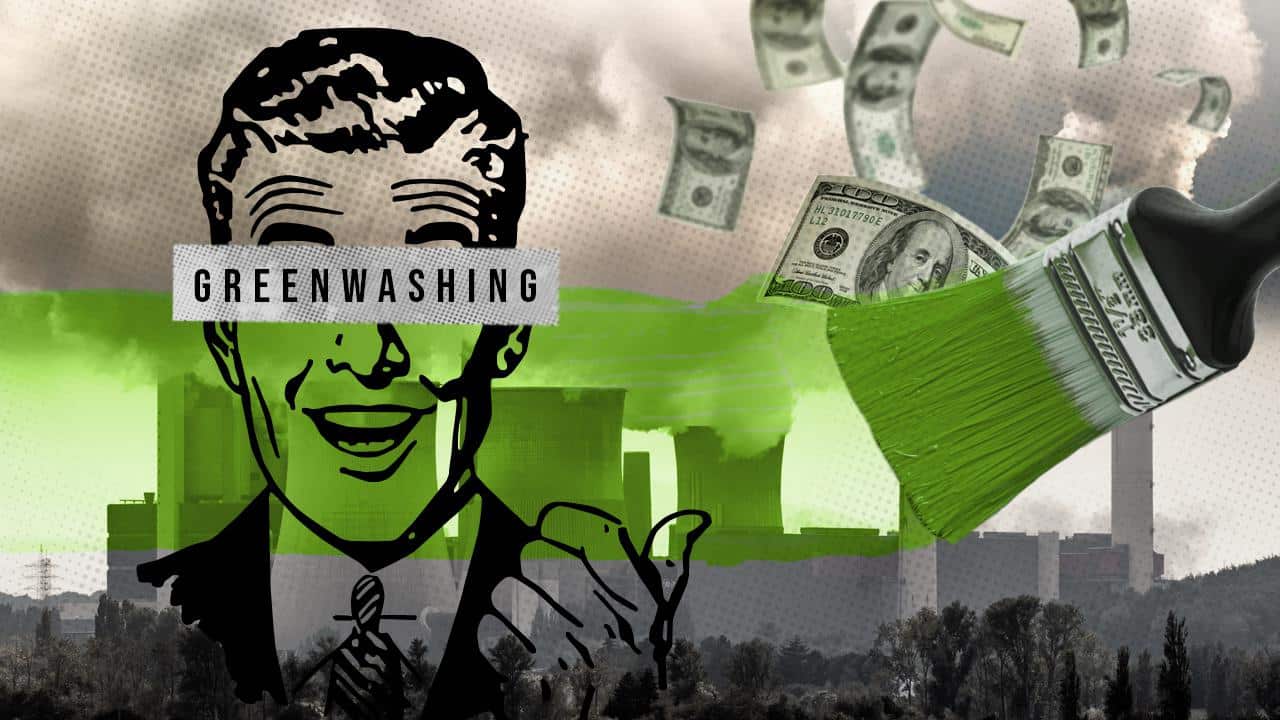Greenwashing: Why it happens, what it looks like and how we can prevent it from happening?
In 2015, the US environmental protection agency (EPA) found that VW motors had violated the clean air act by equipping over 500,000 new vehicles with a “defeat device”, a form of computer software that would allow the cars to cheat federal emissions tests. VW had trouble designing vehicles that could meet the stricter EPA emission standards introduced in 2004 (BBC 2015).
They chose instead to save money by designing a system that could cheat the tests and did this while preaching the message of “low emissions” and more eco-friendly vehicles to capitalise on customers looking for more sustainable products.
VW is one of many companies to have used the process of Greenwashing, defined as “the process of conveying a false impression or providing misleading formation about how a company’s products are more environmentally sound (Investopedia 2022).

Why do companies green wash?
Not appearing sustainable in todays market will quickly make a company a black sheep in the market. Consumers over recent years have become more environmentally conscious and are becoming more and more likely to discriminate against products that don’t appear to be sustainable. As the consumer base grows, companies are more tempted to greenwash in order to secure as much of the new market segment and the growth in profits that come with it (Watson 2016).
Many companies make this decision due to cost. Established companies have operated for years using existing business models developed years ago. In some cases, it has brought them immense success. Changing a winning formula can be hard for companies to stomach both culturally and financially. Shell claims to be moving towards more sustainable energy, but in reality only makes direct investment into certificates and media rather than impactful initiatives. At the same time, it continues to invest is profits into preserving their existing fossil fuel revenue streams (Ethical consumer 2020).

- A satirical take on Shells commitment to "green" energy (Cullen 2018)
What can we do about it?
As consumers, we need to be aware of what forms greenwashing can take and be willing to hold organisation accountable when they are caught lying to us.
We need to be on the lookout for the following:
Sustainable products make up a small proportion of a company’s product portfolio
- BP claims to be focused on sustainability, but in reality over 96% of the annual capital costs go towards non-renewable energy sources (Ethical consumer 2020).
- Companies that cover over the rest of the operations with one sustainable deed should not be held in high regard.
How do they compare with more sustainable competition?
- Companies may claim to leaders in sustainability and use comparisons to competitors to get this point across.
- However, as was the case with Ryan Air in 2019, where the claimed to be leaders in low carbon flying, but missed many competitors in their analysis (Ethical consumer 2020).
How do they define sustainability?
- Our view of sustainability may be different to the view held by large private companies.
- Shell considers themselves sustainable for investing in green certifications and carbon offsetting (Ethical consumer 2020), where as we may view other companies who inf fact to choose to simply change their energy production to renewable sources as more sustainable.
Closing statement:
The world is full of companies that at their core, do want to make a positive impact and are willing to invest the money, time and resources to make it. It is also full of companies who want to do their bare minimum to preserve their reputation among consumers while not really making any impactful change.
As consumers, we need to be willing to think for ourselves and be willing to ask these companies difficult questions to keep them accountable and truly innovative. Only then will we really have a chance to prevent ourselves to be fooled like VW did to its customers for over a decade.
Sources:
Cullen, D . (2018). SHELL’S FESTIVAL OF UNBELIEVABLE BULLSHIT. Available: https://newint.org/features/web-exclusive-2018/06/27-shell-bullshit. Last accessed 28th Jan 2022.
Ethical Consumer. (2020). What is Greenwashing?. Available: https://www.ethicalconsumer.org/transport-travel/what-greenwashing. Last accessed Jan 28th 2022.
Hotten, R. (2015). VW: The Scandal explained. Available: https://www.bbc.com/news/business-34324772. Last accessed Jan 28th 2022.
Kenton, W. (2021). What is Greenwashing?. Available: https://www.investopedia.com/terms/g/greenwashing.asp. Last accessed 28th Jan 2022.
Watson,B. (2016). The troubling evolution of corporate greenwashing. Available: https://www.theguardian.com/sustainable-business/2016/aug/20/greenwashing-environmentalism-lies-companies. Last accessed Jan 28th 2022.
Greenwashing is undoubtedly a troubling evolution as more businesses use “green” buzzwords and false claims to capture the market. In the fashion industry, such brands as H&M and ASOS have been accused of greenwashing, and it’s interesting to see more sources compare such unethical brands with ethical leaders like Patagonia to shed light on the issue.
ReplyDeleteAs consumers, I agree with you that we need to recognize greenwashing when it occurs and hold organizations accountable. Beyond greenwashing, consumers should also watch out for social washing, i.e., when businesses wrongfully market their products or services as socially responsible. Whether organizations are greenwashing or social washing, consumers should look out for vague buzzwords, a lack of transparency, and counterintuitive values.
Sources referenced:
https://www.panaprium.com/blogs/i/fast-fashion-brands-accused-of-greenwashing
https://www.downtoearth.org.in/blog/environment/the-deception-of-greenwashing-in-fast-fashion-75557
https://www.panaprium.com/blogs/i/social-washing#:~:text=A%20business%20or%20organization%20is,economic%20gains%20and%20public%20image.
This comment has been removed by the author.
DeleteI believe both truly sustainable companies and consumers should take action to clearly position themselves as real sustainable agents. Moreover, as it damages the general public and it is an act of lie, some kind of institution should also take action because it has negative consequences for all the stakeholders and the planet.
ReplyDelete